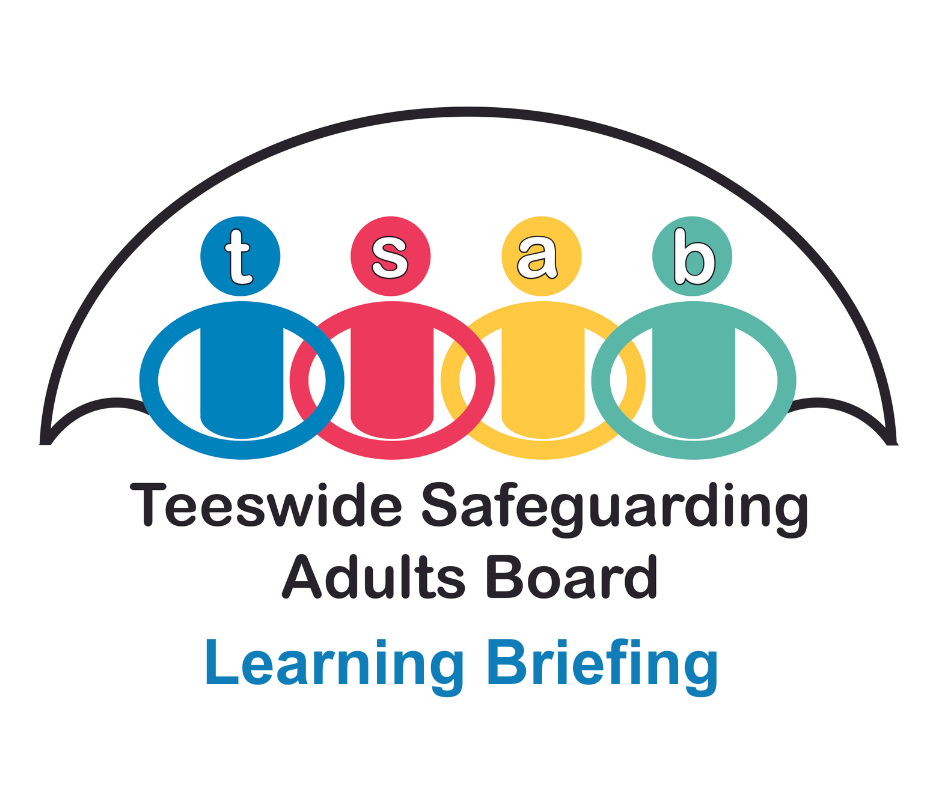
What is Professional Curiosity?
Professional curiosity is a combination of looking, listening, asking direct questions, clarifying and reflecting on information received and not accepting it at face value when you have doubts and acknowledging that “gut feeling” when you have concerns. It is “asking why” of yourself and others and thinking outside of the box to help build a fuller picture. It means testing out your professional assumptions about different types of families.
Why is it important?
Recent Safeguarding Adult Reviews (SARs) have highlighted a need for professional curiosity in safeguarding adults with care and support needs.
Incorrect assumptions can be made in assessments of needs and risk which could lead to wrong or no interventions for individuals and families. It is natural to want to believe the best of a family, thinking the unthinkable does not mean assuming the worst. It means keeping an open mind, thinking objectively about the evidence presented.
 1. Look
1. Look
Is there anything about what you see when you meet with the adult/ family which prompts questions or makes you feel uneasy? Are you observing any behaviour which indicates abuse or neglect? Does what you see support or contradict what you’re being told? Ask why?
 2. Listen
2. Listen
Are you being told anything which needs further clarification? Are you concerned about what you hear family members say to each other? Is someone in this family trying to tell you something but is finding it difficult to express themselves? Ask why?
 3. Ask
3. Ask
Are there direct questions you could ask when you meet the adult/family which will provide more information about the vulnerability of individual family members? Here are some examples: How do you spend a typical day? Who do you live with? When were you last happy? What do you look forward to? How did you get that injury? Who is this with you? When do you feel safe? Ask why?
 4. Clarify
4. Clarify
Are other professionals involved? Have other professionals seen the same as you? Are others concerned? If so, what action has been taken and by whom? Are professionals being told the same or different things? Ask why?
Consider holding a Multi-Disciplinary Team meeting (see TSAB Guidance).
 5. Reflect
5. Reflect
- Do not accept a single piece of information at face value.
- Weigh up all of the information you have collated from multiple sources including the individual, family, other professionals and records.
- Seek independent confirmation of individuals’ accounts, particularly when there appear to be discrepancies.
- Professionals need to be aware of their own values without letting them influence their decision making and practice in a way that is non-judgemental and anti-discriminatory.
- What is the information telling you? Why?
- Be confident in your judgement where professional opinions differ and refer to your manager and TSAB’s Professional Challenge Procedure when required. Sharing your findings/ concerns with colleagues and managers can help to maintain a clear focus.
- ’Think Family’: Consider risk to others, including vulnerable adults and children.
Holding Difficult Conversations
Tackling disagreements or hostility, raising concerns or challenge, and giving information that will not be well received are recognised as hard things to do.
Tips on how to have difficult conversations:
- Plan in advance: Ensure there will be time to discuss what is required
- Be clear and concise: Keep the discussions focused on the topics you need to discuss.
- Person-centred: Have courage and focus on the needs of the adult
- Stick to the facts: Be non-confrontational and non-blaming
- Have evidence to back up what you say: Make sure decision-making is justifiable and transparent
- Be real and honest: Show empathy, consideration and compassion
- Demonstrate ‘congruence’: make sure your tone, body language and content of speech are consistent
- Acknowledge ‘gut feelings’: share these with other professionals, and look for evidence
- Be aware: Understand the elements and indicators of behavioural change
- Clarify what is being said: Understand the complexities of disguised compliance
- Apply professional judgement
- Ask the obvious questions and go beyond: There is no such thing as a ‘silly question’, but building a relationship with the person can help practitioners to delve deeper.
Engagement with Services
Being ‘professionally curious’ as to why someone may be finding services difficult to engage with is important for strategies to put in place to support a person to engage and to prevent missed opportunities.
View TSAB’s guidance on “Making services easier for people to engage in”.
How Managers Can Support with Professional Curiosity
- Allow time for all of the above to happen. Time to build a relationship with the person, time for reflection, time for regular supervision and time for peer support.
- Play devil’s advocate – asking ‘what if?’ questions to challenge and support practitioners to think more widely around cases
- Question whether outcomes have improved for the person and request evidence of this
- Present alternative hypotheses about what could be happening
- Provide opportunities for group supervision to help stimulate debate and curious questioning
- Consider that the issues considered in one case may be reflected in other cases in the team
- Present cases from the perspective of other family members or professionals
- Ask practitioners what led them to arrive at their conclusion and support them to think through the evidence
- Monitor workloads and encourage practitioners to talk about and support them to address issues of stress or pressure
- Support practitioners to recognise when they are tired and need a fresh pair of eyes on a case
- Promote a Professionally Curious culture
Professional Curiosity Webinars
Professional Curiosity: What does it really mean and how to be curious in your work
How to enable a professionally curious workforce (for managers)
Acknowledgements/ Resources
With thanks to Norfolk Safeguarding Adults Board for their guidance, Knowsley Safeguarding Adults Board for their 7 minute briefing and Trafford Safeguarding Adults Board for their 7 minute briefing.
Other Resources:
Please take a look at TSAB’s Safeguarding Adult Reviews for additional learning from reviews.
Waltham Forest SAB video: Bitesize Guide: Professional Curiosity
National SAB Manager Network: Have you thought about Professional Curiosity?
Version: 1.1
Date Approved: October 2024 Updated: March 2025